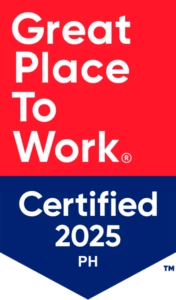- The Brutal Reality of SME Hiring in 2025
- The Uneven Playing Field
- Where Traditional Recruitment Falls Short
- The Real Cost of Hiring Failures
- Why Creative Recruitment Isn’t the Answer in 2025
- The Smart Alternative: Strategic Outsourcing
- The Outsourcing Advantage in Action
- Making the Strategic Shift
- The Future of SME Success
- Ready to Break the Cycle?
Latest research reveals shocking truths about Australian SME hiring – and a solution that’s changing everything
The Brutal Reality of SME Hiring in 2025
Australian small and medium enterprises are facing a hiring crisis that’s quietly destroying businesses from the inside out. Employment Hero’s latest research of over 1,000 SME leaders reveals a devastating picture that should make every business owner sit up and take notice.
The numbers are staggering:
- 60% of businesses watch new hires walk out the door within their first month
- 89% of SMEs are chronically understaffed
- 56% rely on exhausted teams working overtime just to keep the lights on
- Small businesses spend an average of $8,090 annually on hiring, while medium businesses stretch to $18,371
But here’s the kicker: despite spending thousands on recruitment, most SMEs are stuck in a vicious cycle of hiring, losing staff, and hiring again.
The Uneven Playing Field
The research exposes a harsh truth – this isn’t just about finding good people. It’s about competing in a rigged game.
The spending gap is enormous:
- Companies under $2M turnover: $7,300 average hiring spend
- Companies with $2-10M turnover: $12,620 average hiring spend
- Companies over $10M turnover: $24,045 average hiring spend
That’s a 3.5x difference. While larger companies can afford premium recruitment agencies, competitive salaries, and comprehensive benefits packages, small businesses are fighting for scraps with limited budgets and resources.
Where Traditional Recruitment Falls Short
The data reveals some uncomfortable truths about where SMEs are placing their bets:
Most Popular Hiring Channels in 2025:
- LinkedIn (55% use it)
- Other online job platforms (42%)
- SEEK (41%)
- Local Facebook groups (37%)
- Referrals (35%)
But here’s the problem: While these platforms generate volume, they don’t solve the fundamental issues plaguing SME hiring:
- Quality over quantity: Posting on job boards attracts hundreds of applications, but most are unsuitable
- Time drain: Business owners spend hours screening candidates instead of growing their business
- Geographic limitations: You’re competing for the same local talent pool as everyone else
- Cost inefficiency: Multiple platform subscriptions, premium job ad features, and agency fees quickly add up
The Real Cost of Hiring Failures
When Employment Hero’s research shows that 78% of SMEs have had someone leave within three months, we’re not just talking about inconvenience, we’re talking about business-threatening financial drain.
- Repeated recruitment advertising
- Time spent re-interviewing candidates
- Productivity losses during understaffing periods
- Overtime costs for existing staff (56% rely on this)
- Training investments lost on departed employees
- Business owner time diverted from strategic work
For businesses already operating on thin margins, this cycle can be fatal.
Why Creative Recruitment Isn’t the Answer in 2025
The research highlights some creative hiring approaches, from TikTok video applications to rollercoaster interviews. While these stories make for great conversation, they miss the point entirely.
SMEs don’t need gimmicks. They need:
- Access to qualified, motivated candidates
- Cost-effective hiring processes
- Reduced time-to-hire
- Better candidate retention
- Competitive advantage over larger companies
The Smart Alternative: Strategic Outsourcing
While the research reveals the problems, it also points to a solution that forward-thinking SMEs are already embracing: strategic outsourcing.
Here’s how outsourcing transforms the hiring equation:
1. Access to Global Talent Pools
Instead of competing for the same local candidates, outsourcing opens access to skilled professionals worldwide. That marketing specialist you can’t afford locally? They might be available at a fraction of the cost in Eastern Europe or Southeast Asia.
2. Cost Efficiency That Actually Works
- Reduced overhead: No need for expensive office space, equipment, or benefits
- Competitive salaries: Access talent at 50-70% less than local equivalent roles
- Eliminated recruitment costs: Outsourcing partners handle sourcing, screening, and onboarding and even the on-going HR.
- Predictable expenses: Fixed monthly costs instead of variable hiring expenses
3. Immediate Availability
While traditional hiring takes weeks or months, outsourcing can deliver qualified professionals within days. No more chronically understaffed teams or exhausted employees working overtime.
4. Reduced Turnover Risk
Outsourcing partners specialize in matching candidates to roles and managing retention. Their success depends on long-term placements, not quick fills.
5. Scalability Without Commitment
Need to scale up for a project? Scale down during slow periods? Outsourcing provides flexibility that traditional hiring can’t match.
The Outsourcing Advantage in Action
Consider these scenarios:
Customer Service: Instead of hiring local customer service representatives at $80,000+ annually, access skilled professionals providing 24/7 coverage at $25,000-30,000 per role.
Administrative Tasks: Rather than hiring full-time administrative staff, outsource data entry, bookkeeping, and documentation to specialists who cost 60% less.
Digital Marketing: Access experienced digital marketers, content creators, and social media specialists at a fraction of local agency costs.
Technical Roles: Find skilled developers, designers, and IT professionals without the premium salaries and benefits packages required locally.
Making the Strategic Shift
The Employment Hero research shows that SMEs using traditional recruitment methods are fighting an uphill battle. But businesses that embrace strategic outsourcing are discovering a competitive advantage that levels the playing field.
The key is approaching outsourcing strategically:
- Identify Core vs. Non-Core Functions – Keep strategic roles in-house, outsource operational tasks
- Choose the Right Partner – Work with outsourcing specialists who understand your industry
- Start Small and Scale – Begin with one or two roles to test the process
- Focus on Communication – Establish clear processes for managing remote teams
- Measure Results – Track cost savings, productivity gains, and quality improvements
The Future of SME Success
The research is clear: traditional hiring approaches are failing Australian SMEs (Small and Mid-Market businesses). The businesses that will thrive in 2025 and beyond are those willing to embrace new approaches to building their teams.
Outsourcing isn’t just about cutting costs – it’s about accessing opportunities that traditional hiring simply can’t provide:
- Global talent access
- Immediate scalability
- Predictable costs
- Reduced administrative burden
- Competitive advantage
While your competitors continue struggling with the same tired recruitment approaches, you could be building a more efficient, cost-effective, and scalable operation.
Ready to Break the Cycle?
The Employment Hero research shows that 89% of SMEs are understaffed, 60% lose new hires within a month, and most are spending thousands on recruitment with little to show for it.
But it doesn’t have to be this way.
Strategic outsourcing offers SMEs a path to:
- Reduce hiring costs by 50-70%
- Access qualified candidates within days, not months
- Scale teams up or down based on business needs
- Free up time for strategic business growth
- Compete effectively against larger companies
The question isn’t whether you can afford to consider outsourcing, it’s whether you can afford not to!
Want to discover how outsourcing can transform your hiring challenges into competitive advantages?
Contact our team to learn how we’ve helped hundreds of Australian SMEs break free from the traditional hiring cycle and build more efficient, cost-effective operations.
Visit www.webcotalent.au and discover why smart SMEs are choosing outsourcing over traditional recruitment.
Sources: Employment Hero Hiring Snapshot Report 2025 – Survey of 1,017 Australian SME leaders conducted March 2025
Related posts:
 How Australian SME Recruiters Can Compete in 2025
How Australian SME Recruiters Can Compete in 2025
 Hiring Developers for Your Australian SMEs: Local vs Offshore Cost Breakdown
Hiring Developers for Your Australian SMEs: Local vs Offshore Cost Breakdown
 Outsourcing, Offshoring & Nearshoring: How Australian SMBs Can Build a Winning Global Talent Strategy
Outsourcing, Offshoring & Nearshoring: How Australian SMBs Can Build a Winning Global Talent Strategy
 Australian Offshore Market Outlook 2026: What SMEs Must Do to Thrive in an Increasingly Competitive Landscape
Australian Offshore Market Outlook 2026: What SMEs Must Do to Thrive in an Increasingly Competitive Landscape






